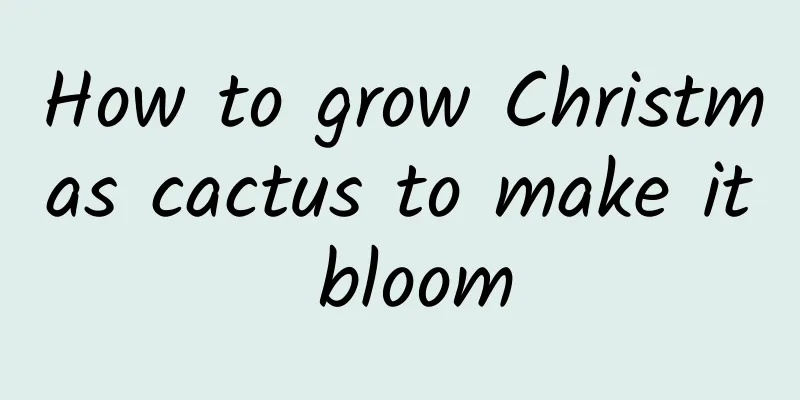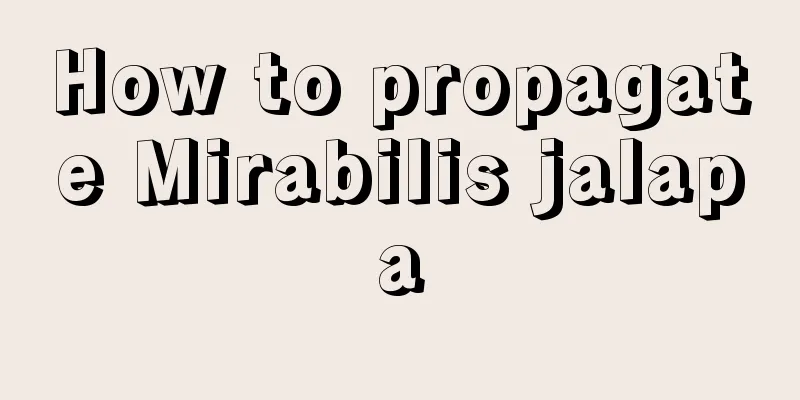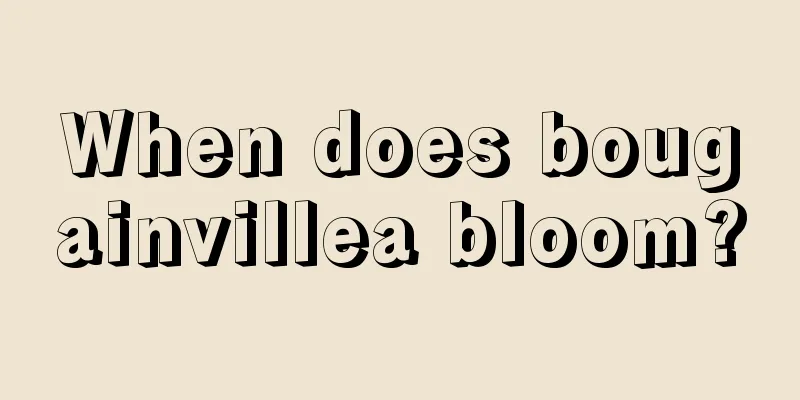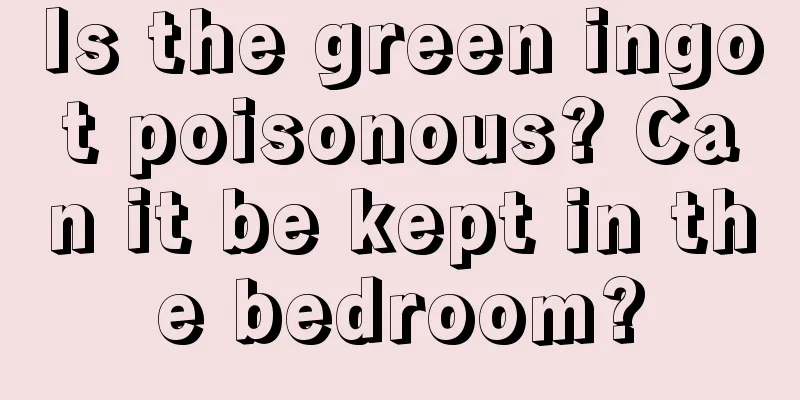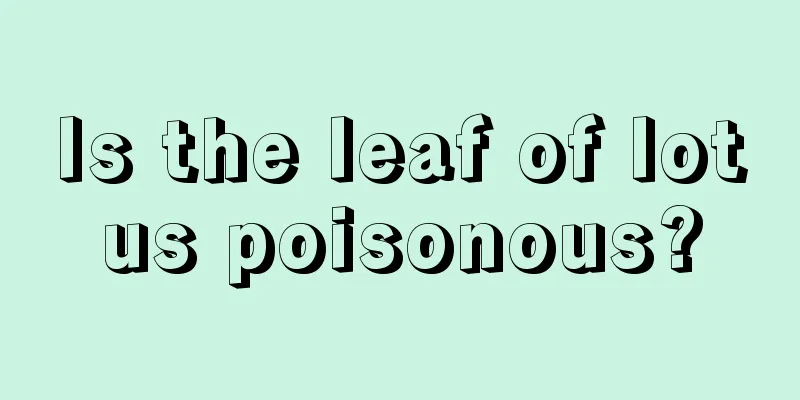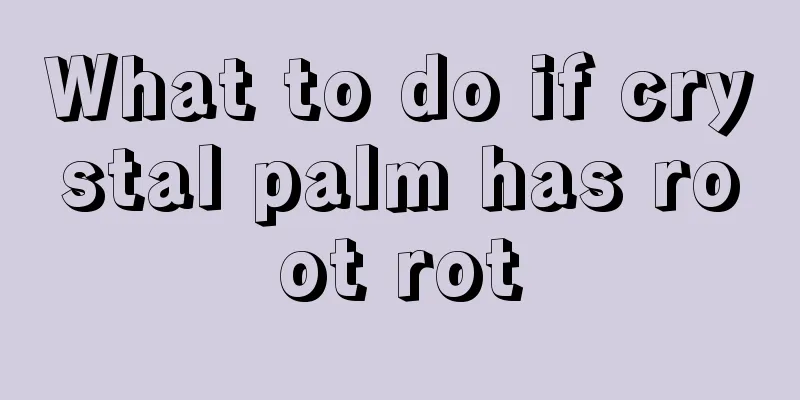Tips for removing pests from vegetables: What methods are effective and environmentally friendly for removing pests from vegetables at home?
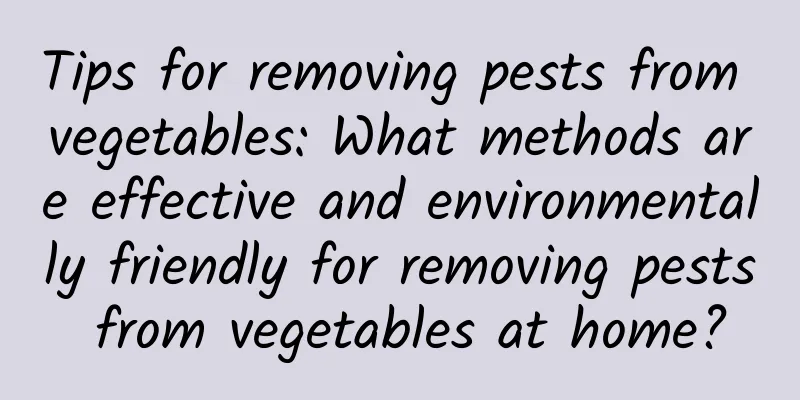
|
When vegetables are planted, piercing-sucking pests such as vegetable whiteflies, aphids, red spiders, and gnats often harm the tender leaves of vegetables. Because these tender leaves secrete more folic acid, these pests prefer to eat them, which is extremely harmful to the growth of vegetables. So, what are some tips for preventing vegetable pests? Pepper water insect repellentPepper water contains capsaicin, and pests are sensitive to spicy smells . Pests on vegetables will suffocate and die after sucking it. Moreover, this smell also has the effect of repelling pests and protecting the leaves from harm. Many farmers use this principle to chop peppers and boil them. Then dilute them with water and spray them to achieve the effect of preventing and controlling insects. When using pepper water, it must be diluted before spraying. After spraying pepper water, if the insect control effect is good, the pests can be seen dead in one day. It is recommended to spray it again with clean water to prevent the pepper water from adhering to the leaves for a long time, affecting photosynthesis, and causing the plants to die and wither. More and more farmers have mastered the skills of biological pest control, and spraying pepper water is one of them. Pepper water has a certain insecticidal effect when used to grow vegetables. But when spraying, pay attention to the above three aspects and use it reasonably. Similar to pepper water, there are also tobacco soaked in water and sprayed for insect repellent, plant ash for insect repellent, sweet and sour liquid for insect repellent, etc. Whether it is pesticide control or biological control, pests will develop resistance, and the insecticidal effect of pepper water will naturally be affected. Some vegetables grow strong, and the pepper water has a strong taste, which can improve the insecticidal effect. Neem OilNeem oil is indicated for use against the following pests: aphids, scale insects, mites (red spiders), Japanese beetles, locusts, common flies, thrips, etc. Another benefit of neem oil is that it tastes very bitter. So spraying it on the leaves and stems of plants will prevent small insects from roosting, indirectly having an insect repellent effect. It does no harm to larger, beneficial animals such as bees and birds. Garlic OilIn addition to sterilization, the strong smell of garlic oil can repel pests . Users with moss on leaves and branches can spray garlic oil on both leaves and branches. Leek juice + laundry detergentFarmers can use two kilograms of leeks, mash them to extract the juice, add a sprayer of water, and then add about 100 grams of neutral laundry detergent and spray it. Because leek juice can not only change the taste of the leaves, but also play a repellent role. The laundry detergent can stick to the juice and increase the duration of effectiveness. |
<<: Green Jade Tree Cutting Method Illustrated Green Jade Tree Cutting Rooting Fastest
Recommend
Is growing chrysanthemums profitable? The cost and profit of planting one acre
Is growing chrysanthemums profitable? There are m...
What is the cause of lotus root rot?
1. Fertilizer Harm Reason: Fertilizing the lotus ...
Can strawberries be grown hydroponically?
Strawberry is a fruit with high economic value an...
Fruiting of Figs
When do figs bear fruit? Fig is a common fruit tr...
How to grow money tree
Farming methods soil The basic requirement for so...
How to care for hydroponic Wenchang bamboo
Method of hydroponic cultivation of Wenchang bamb...
How to water hibiscus
Watering tips for hibiscus Hibiscus is also known...
What is Acacia pubescens and what are the differences between it and Cistanche deserticola
1. What is 1. Leaves: It is a plant belonging to ...
Blueberry cutting propagation methods and precautions
Blueberry cutting time Blueberry is a plant of th...
How to grow Jade Plant
1. Breeding methods 1. Flower soil: Jade plant pr...
The efficacy and function of Houttuynia
1. Anti-virus Houttuynia cordata has significant ...
How to raise the newly bought Ji Qiuli
1. How to cultivate the newly bought Ji Qiuli Ji ...
Is it good feng shui to put camellia in the home?
one. Feng Shui Effect: 1. When the flowers of thi...
Top Ten Rare Orchids
1. Black orchid Mo Lan is also called the New Yea...
How long is the growth cycle of ryegrass?
Introduction to Ryegrass Growth Ryegrass has low ...
